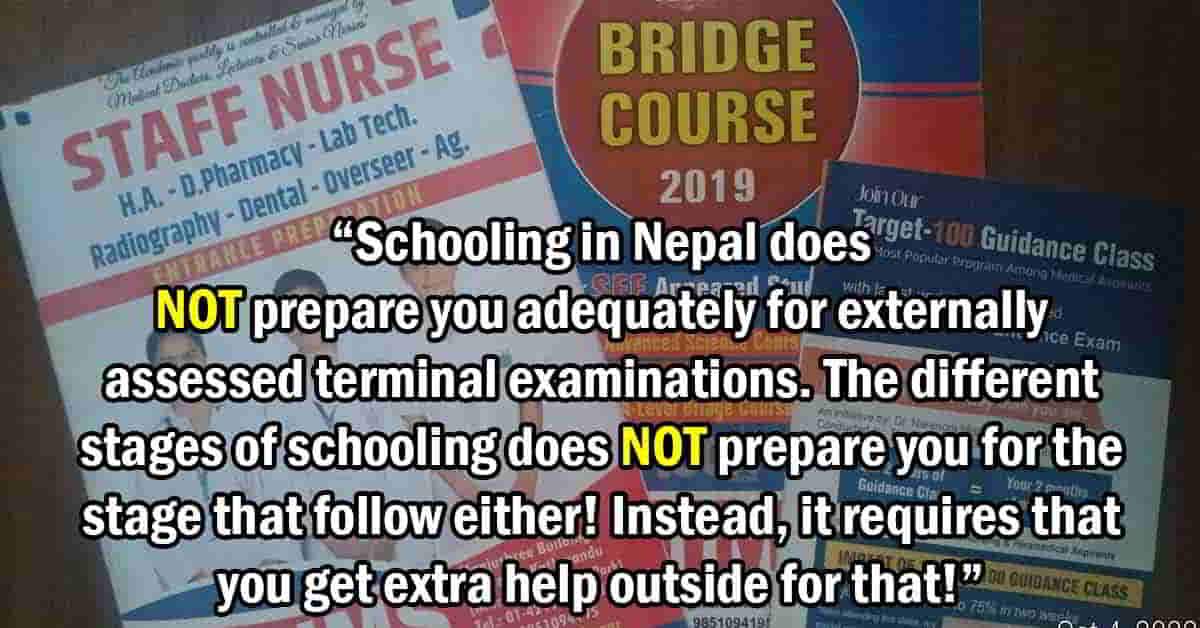
So, again, how screwed up is the education system in Nepal?
After just a few years of education at a pre-school followed by some years at a primary school, as 6th grade children, maybe just starting puberty, you have to start learning about model questions (see image).
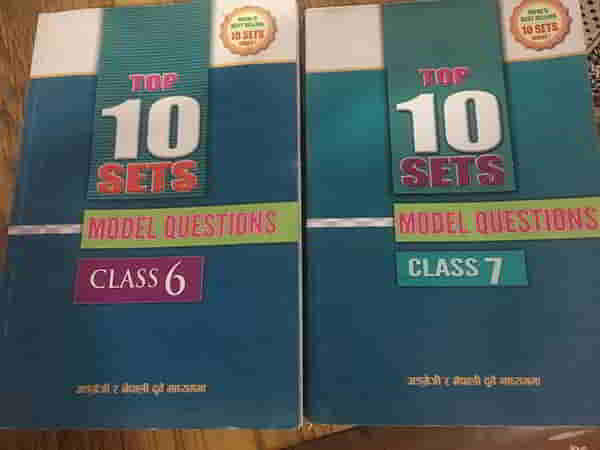
(If that actually starts earlier, I just haven’t come across evidence. That is NOT to say that it might not!)
I wouldn’t be surprised if, under pressure from teachers and/or school and/or parents, you end up taking private tuition at such an early age — possibly from your own teachers too! (And no, that’s NOT unusual; as a matter of fact, that is THE practice! Teachers privately tutoring their own students is THE culture in Nepal’s education system. Doing so was forbidden in the schools I taught at abroad, and rightly so too, of course! It’s unethical; it’s a major conflict of interest.)
At the end of grade 8, you have to take the local level examination. (When I was a student in the seventies and eighties, we had to take the equivalent — the district level examination — in grade 3!) The deal is that you have to pass it in order to continue with your secondary school education. I am NOT sure how strict the system is about that, however.
Regardless, of course, because the examination basically tests your ability to regurgitate materials, the more exposure you get to model questions and the more practice you get with regurgitating the stock answers, the better the chances of acing it. (I don’t have any estimate for the percentage of students who have to rely on private tuition in order to ace it or just to pass though. If I had to guess, I would say a majority.)
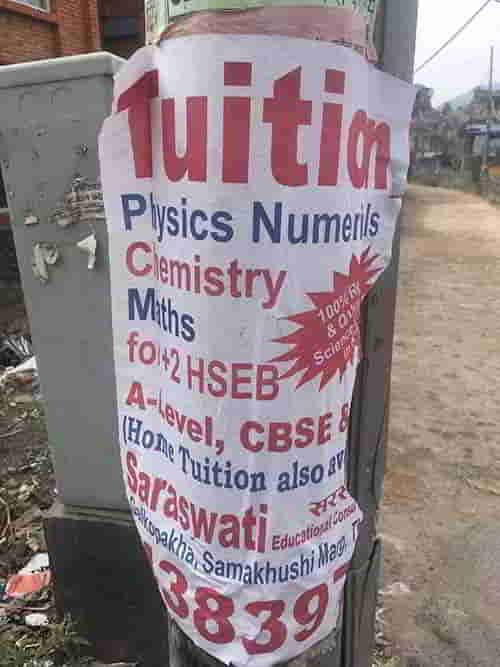
Anyway, you ace the local level examination in grade 8 and then, in grades 9 and 10, prepare for Secondary Education Examination (SEE), a national level examination.
Over the course of the two years, you take private tuition and/or extra after-school classes in the school itself (see below) to try to ace SEE.
.Trying to arrange time for my#TeacherEducation workshops
— Dorje Gurung, ScD (h.c.) (@Dorje_sDooing) September 12, 2020
at a private school in Kathmandu
a while ago, d school just couldn’t
find any time during d week.
You know what d reason was?
They ran after-school classes
for students EVERY DAY!#Nepal #NepalEducation#EducationSystem
You do ace SEE…but that does NOT automatically prepare or qualify you for post-secondary education. Because, you see, while K-10 schooling is either English or Nepali medium and you can opt to take SEE in either of the languages, post-secondary education — Higher Secondary School (HSS) and beyond — is English medium! So naturally, you have to jump through yet another hoop!
You would have to take private tuition — or a “Bridge Course” as they appear to be called (see below) — and/or extra classes to pass HSS admission tests (in order to continue on to grades 11)!
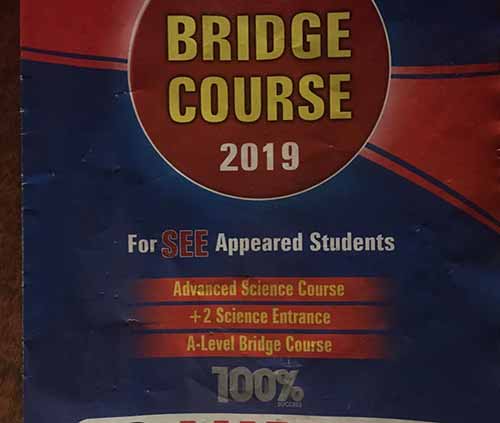
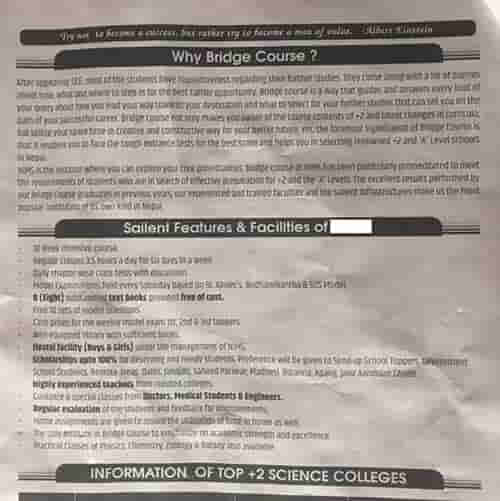
(Incidentally, transition from Secondary School to HSS, and from HSS to (undergraduate) College, and from college to specialist institutions (such as medical school) etc. includes significant break in time. That is, there is a longish gap between the examination and the results, and between the results and the start of the next stage in Nepali students’ academic career. Additionally, admission tests are ubiquitous here. Even five- or six-year-old children trying to enroll in grade one are administered admission tests!)
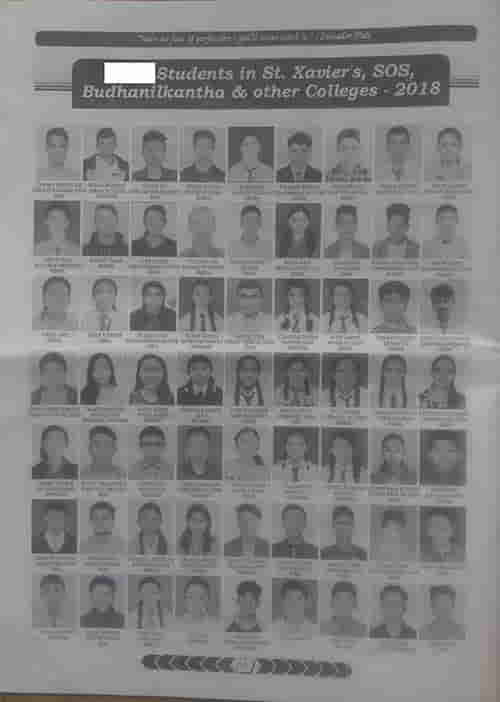
Let’s say you ace HSS admission tests, get into one of the top tier schools, ace the yearly examinations in the two-year course (by taking private tuition/extra classes etc.)…you still have to, again, take private tuition and/or extra (bridge) classes to pass the undergraduate college admission tests!
Never mind any of that! Let’s just again say you ace the admission tests and enroll in one of the top tier undergraduate colleges in the country, pass the undergraduate examinations…. Then AGAIN too, you likely have to take private tuition and/or extra classes or “Entrance Preparation” classes or “Guidance Classes” (see below) to pass the admission tests in the field of the studies you want to pursue.
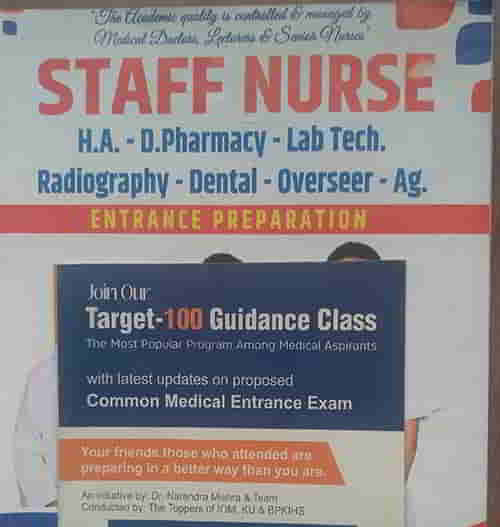
In other words, in Nepal, schooling neither prepares you adequately for externally assessed terminal examinations nor do the different stages prepare you for the stage that follow! What’s the point of such an education system?! I mean, what’s the point of an education system that requires you to take private tuition or extra classes to pass the terminal examinations, or one that requires you to take bridge courses to pass admission tests in order to continue your academic career?! Well, that’s one of the many sad consequences of an education system that imparts only the most basic of skills — the ability to memorize and regurgitate facts and figures. Another reason for that is the fact that education is an extremely lucrative business instead of the service it’s supposed to be. It goes without saying that a majority of you can’t afford private school education, forget private tuition and/or bridge courses!
And why won’t all this be completely overhauled etc. you might ask? Well because it serves the interests of way too many in powerful and influential positions in this country. The fact that there are so many so-called educational institutes or educational consultancies running educational programs apart from academic institutions also lends weight to my contention that education in Nepal is a highly lucrative business. For one, those in powerful and influential position financially benefit from the business. For another, keeping the quality of education as well as the level of education of the population so low — less then 10% in the country have twelve or more years of education (see below) — enables the powerful and influential to continue to control and manipulate the population as they wish and hold on to power.
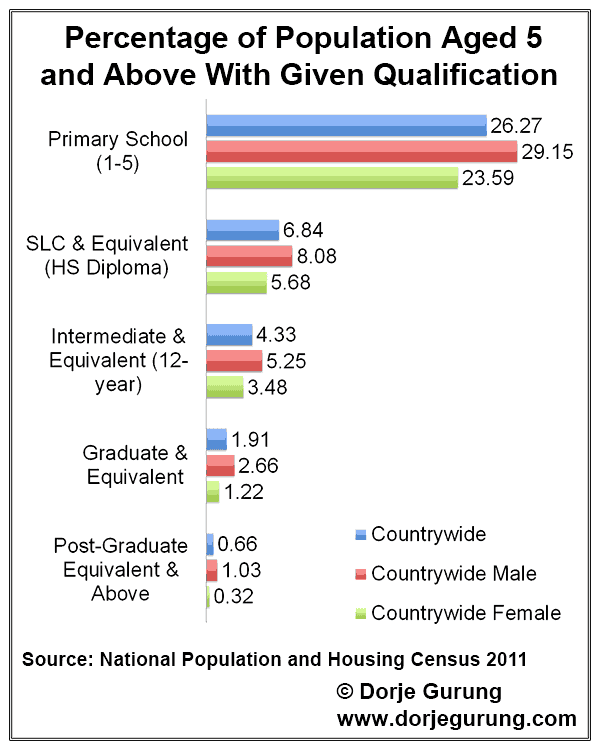
What do you think?
(This blog post is a rework of a May 8, 2022 Facebook post.)
Additional Materials
In support of the above blog, here are links to some other blogs about the education system of Nepal. To begin with, our textbooks are of horrendously poor quality. The following are about some of them.
- A Primary School Poetry Textbook: Another Evidence of the Failure of Nepali Education System?
- Love Marriage…According to a Grade 9 Textbook
- Nepal Education: Our Textbooks Hinder Learning!
- Grade 8 Social Studies Textbook: The Caste System Is a “small” Issue
- My My, Hey Hey, My English Book Has It Yay!
- When A Textbook In Nepal Fail Children
- Revised and Updated Does NOT Mean Revised and Updated (This blog post also lists the many of what could be labeled “worst practices” as opposed to “best practices” implemented by the Nepali education system.)
Kantipur FM Commentary: The Business of Education I and Kantipur FM Commentary: The Business of Education II are about how even in the 1990’s private school education was a business. It’s gotten worse since. One of the other reasons behind that? A perverted mentality of the population: school fees is a status symbol! Kantipur FM Commentary: School Fees And Social Status I and Kantipur FM Commentary: School Fees And Social Status II are about just that. Studies Show Race of Teacher Affects Education of Students in the US. What About Caste of Teacher in Nepal? Probably is about disproportionately high representation of the hill so-called high caste Hindus in the teaching fraternity. Nepal, Cultivate a Child’s Mind Instead of Controlling It and Nepali Education System Teaches Students to NOT Think are about just what they say they are about. Post-secondary Education: Here’s One of The Major Ways We Fail Our Students is about the kind of vague and indecipherable questions — and their equally nonsensical answers — grade 11-12 students have to memorize. Questioning the Questions Grade 11-12 Students Must Tackle, And My Solution are about two grade 11-12 model Chemistry questions, answers, and their alternative. In A Lesson From Nepal: How to Fail Your Students Part I and A Lesson From Nepal: How to Fail Your Students Part II I shred an absolutely unbelievable grade 12 chemistry examination paper.

yes i hate sxchookl